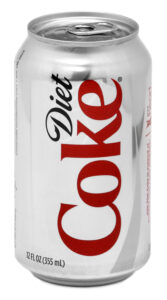Imagine you brought home a carton of milk, opened it for your cereal, started to pour, and out came Diet Coke.

It’s not that you don’t like Diet Coke.
It’s just that you 𝘯𝘦𝘦𝘥𝘦𝘥 milk.
One of the most common frustrations I hear from recruiters and hiring managers is that their candidate’s resumes don’t match the position they are interviewing for.
Do you apply to jobs that may not be in your wheelhouse but apply anyway?
If I’m being honest here, this is a pet peeve of mine.
Recently, I put an ad on LinkedIn. I was looking for a Client Success Manager. Part-time, 20 hours a week. Must have customer service experience. All of these things were spelled out crystal clear in the position description.
I got hundreds of responses within a 36-hour window.
Guess how many had ANYTHING to do with client success, client services, office administration, etc? About 20. The rest were… everything else. I spent four days scrolling through the applicants and reading every resume from top to bottom. Annoyed that so many were obviously not a fit is putting it mildly.
Guess how many had ANYTHING to do with client success, client service, office administration, etc.? About 20. The rest were… everything else.
There were two CEO’s, a CFO, high-tech, a couple of teachers, sales reps, recruiters, business development, process analyst, and so on. And about 90% of them wanted a full-time role.
None of them mentioned any of the skills I listed–and I searched their resumes for something, anything similar.
I even put a little note at the bottom to email me directly with a copy of the resume. After all, this is a small company, it’s not Google. I had the time to be thorough and review each applicant’s resume.
Guess how many people emailed me their resumes?
Go ahead and guess, I’ll wait.
Wrong.
SEVEN people emailed me their resumes. SEVEN.
I won’t vent here about not reading directions on an application, even though I really, really want to. 🙄I’ll save that for another rant post.
Keep in mind that a recruiter or hiring manager will only take a few seconds to view your resume. If they use ATS, the ATS will pick out appropriate matches as well.
So, if you really want to impress a hiring manager, read the entire position description and send them a resume that speaks to the role they need to fill. If your skillset doesn’t match what the position description is asking for, you may want to look at other open positions.
If you have some transferrable skills that will work for the role you want, make sure to add them to the career summary, bullet points, and within each role.
Here are some things to consider when drafting your resume:
✅ 𝗥𝗘𝗟𝗘𝗩𝗔𝗡𝗖𝗘. First, do you have the experience the position asks for? If yes, add examples of what you’ve done. If not, don’t fake it and add it to the resume. Leave it off and lead with other experiences.
✅ 𝗞𝗘𝗬𝗪𝗢𝗥𝗗𝗦. Examine the description and notice the words they use over and over. This tells you that those words will most likely be keywords ATS will look for. Does your resume have those keywords? If not, add them.
✅ 𝗦𝗞𝗜𝗟𝗟 𝗦𝗘𝗧. What skills do you offer the role? Each of us has a unique skill set we bring to the job. Great at relationship building? Expertise in vendor negotiations? Specialize in cyber security? Make sure it’s added to your resume. If you have skills from your current role that can transfer, add them. What did you do in your prior role that will work for this new role?
✅ 𝗩𝗔𝗟𝗨𝗘. What value do you offer? How can you help the company? If you are an 𝗲𝘅𝗲𝗰𝘂𝘁𝗶𝘃𝗲, in what ways have you achieved success? Use quantitative examples where possible. What awards have you received? What results have you produced? How did you help them increase revenue, cut costs, etc.?
To sum it up, making sure your skill set matches the position description is a must. If you think you have transferrable skills for the role, add those to the document. The more you can set yourself up as a candidate with similar skills, the better your chance is of being invited to the interview.




